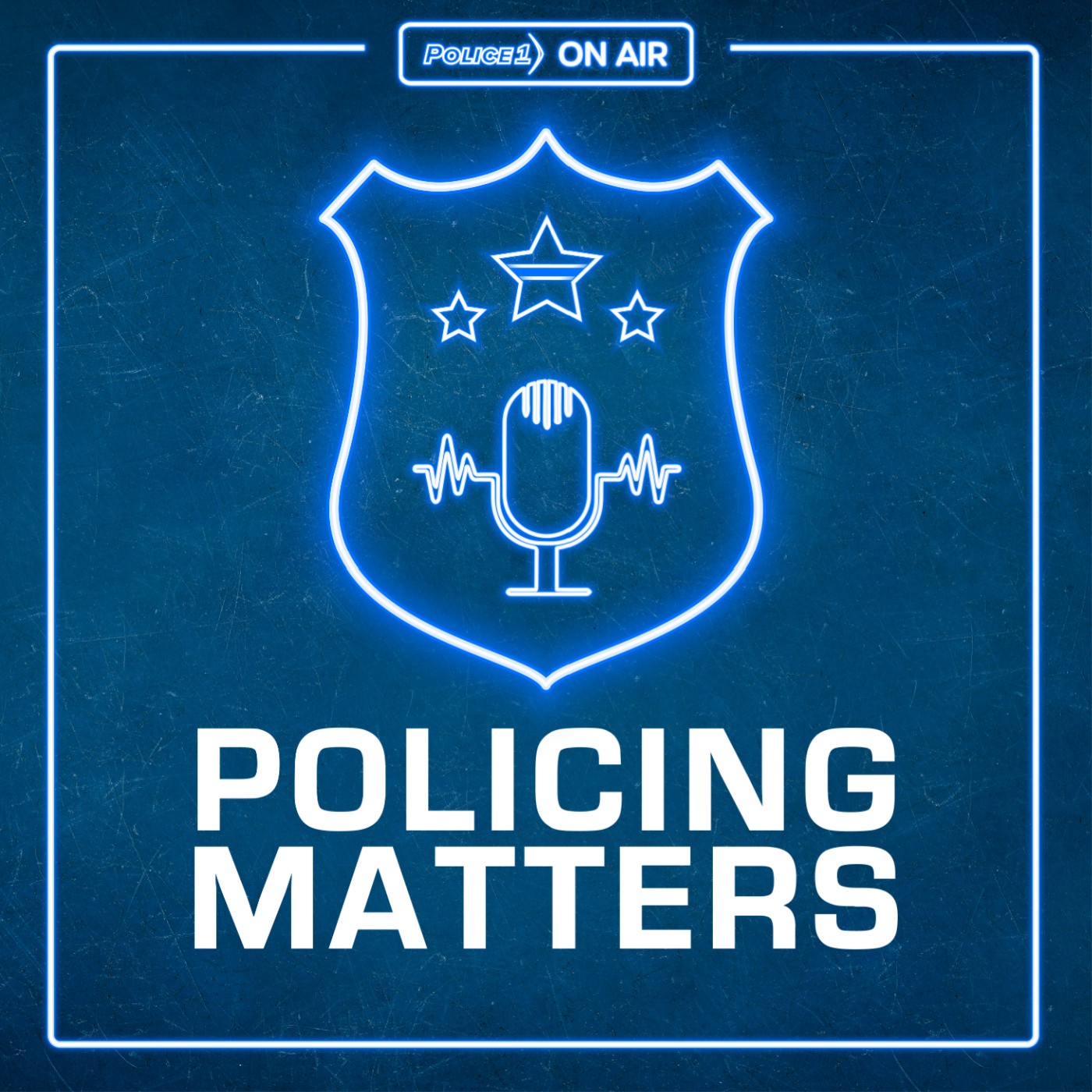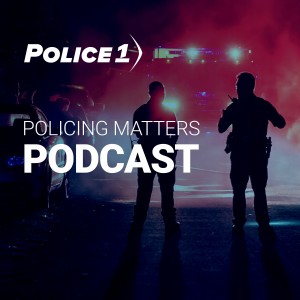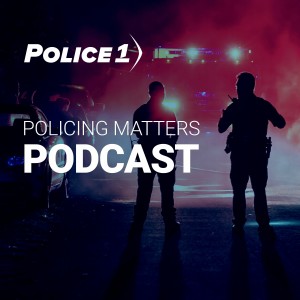
Talking the beat to cover what matters to you as an LEO. Join deputy chief Jim Dudley (ret.) every weekly as he sits down with law enforcement leaders and criminal justice experts to discuss strategy, challenges and trends in policing.
Talking the beat to cover what matters to you as an LEO. Join deputy chief Jim Dudley (ret.) every weekly as he sits down with law enforcement leaders and criminal justice experts to discuss strategy, challenges and trends in policing.
Episodes

Friday Jun 26, 2020
How we took down Pablo Escobar
Friday Jun 26, 2020
Friday Jun 26, 2020
Retired DEA Special Agents Steve Murphy and Javier Pena were at the center of the largest, most complex, multi-national, high-profile investigation of its time. Working with an elite Colombian Task Force, Murphy and Pena were responsible for the downfall and capture of the world’s first narco-terrorist, the infamous drug cartel leader, Pablo Escobar, following his brutal reign as head of the Medellin Cartel in the 1980s and early 1990s. Their real-life story inspired the hit Netflix series NARCOS! In this episode, host Jim Dudley chats with Steve and Javier about the release of their new book, “Manhunters: How We Took Down Pablo Escobar,” and where we find ourselves in the “war on drugs” today.

Friday Jun 19, 2020
Cops as storytellers: A guide to getting published
Friday Jun 19, 2020
Friday Jun 19, 2020
War stories are a tradition in public safety and there is no question that cops may be the best storytellers of all, as they witness extremes of human behavior on a daily basis. But how do you go about turning those stories into a novel? In this episode, host Jim Dudley talks to police psychologist and author of both non-fiction and fiction books about law enforcement Ellen Kirschman about her “tricks of the trade” to becoming a published author.

Friday Jun 12, 2020
Why we should not remove SROs from our schools
Friday Jun 12, 2020
Friday Jun 12, 2020
As demands for police reform and defunding continue nationwide in the wake of protests about the death of George Floyd, some cities have severed ties with their school resource officers, while others are moving closer to eliminating SROs in their districts. In this episode, host Jim Dudley talks to Mo Canady, Executive Director of the National Association of School Resource Officers, about the value of SROs and the risks of removing them from schools.

Friday Jun 05, 2020
Safeguarding your mental wellness: Tips from ‘the cop doc‘
Friday Jun 05, 2020
Friday Jun 05, 2020
Policing may never have been more stressful for officers than right now. Between the COVID-19 pandemic and the current protests and civil unrest in response to the in-custody death of George Floyd, cops nationwide are facing unprecedented levels of criticism from all corners. Managing the stress brought on by these events is key to peak performance. In this episode, host Jim Dudley talks to Ellen Kirschman – AKA “the cop doc” – about strategies police can use to protect their mental wellness during these trying times.

Thursday May 14, 2020
Why kids are the key to good police-community relationships
Thursday May 14, 2020
Thursday May 14, 2020
Police officers have myriad unique opportunities to positively influence America's children—from infancy to young adulthood and beyond. In this podcast segment, Jim and Doug discuss how informal, day-to-day interactions between officers and young people can help begin to change the anti-police sentiment that has taken root among some members of society, as well as how formally funded agency programs like Police Athletic Leagues, Shop with a Cop, National Night Out, and Explorer programs can help improve police-community relations.

Friday May 08, 2020
Cops‘ unique brand of humor
Friday May 08, 2020
Friday May 08, 2020
With the advent of social media sites like Facebook, Instragram, and Twitter—and the rapid rise in law enforcement agencies and officers posting humorous items to those services—the American public is getting a significantly better glimpse into the fact that police officers have a unique brand of humor. In this podcast segment, Jim and Doug discuss how police use humor to alleviate stress from the job.

Wednesday Apr 29, 2020
Solving cold cases
Wednesday Apr 29, 2020
Wednesday Apr 29, 2020
An estimated 40% of the homicides that occurred in the U.S. from 1980 to 2016—approximately 242,000—remain unsolved. Countless other violent crimes—from assault to rape to robbery—also remain open with investigators trying to piece together the evidence in pursuit of justice on behalf of the individual victims as well as society at large. In this podcast segment, Jim and Doug discuss how new technology and an increase in information sharing across agencies nationwide can help police close more cold cases.

Friday Apr 24, 2020
Redefining ‘juvenile‘ crime
Friday Apr 24, 2020
Friday Apr 24, 2020
Some jurisdictions are reconsidering the definition of "juvenile" as it relates to the prosecution of criminal acts. For example, California lawmakers are considering raising the age limit of individuals who would be tried and sentenced as juveniles from 17- to 19-years-old. The author of the bill, Democratic State Senator Nancy Skinner, says that "under the bill, 18- and 19-year-olds would be treated as juveniles in criminal proceedings." She added in a statement on her website, "When teenagers make serious mistakes and commit crimes, state prison is not the answer. Processing teenagers through the juvenile justice system will help ensure they receive the appropriate education, counseling, treatment, and rehabilitation services necessary to achieve real public safety outcomes." In this podcast segment, Jim and Doug Discuss this proposal as well as others like it, and what the ramifications would be on the criminal justice system as well as public safety in general.

Friday Apr 17, 2020
The impact of COVID-19 on reported crime
Friday Apr 17, 2020
Friday Apr 17, 2020
In this installment of Policing Matters, Jim Dudley interviews professor and author Jeffrey Snipes, JD, PhD and Police Organizational Practices consultant. Professor Snipes authored Causes of Crime: Vold’s Theoretical Criminology, and co-authored The Valley of the Shadow of Death, about the 1984 massacre of the family of former NFL star defensive back Kermit Alexander. Listen as they talk about the impact of COVID-19 on reported crime and the potential lasting effects. Will lessons learned from the shelter-in-place orders figure into future policing strategies and policies?

Friday Apr 10, 2020
Protecting critical infrastructure during a pandemic
Friday Apr 10, 2020
Friday Apr 10, 2020
Protecting critical infrastructure is essential during any incident or situation. Considering the ever-changing, daily developments related to the COVID-19 pandemic, good planning is especially valuable right now. Rex Scism speaks with Jim Dudley to describe the essential planning process, priorities, and dealing with county, state and federal governmental agencies. In the follow-up to his article "Protecting critical infrastructure: What your organization can do to weather the storm", Rex further describes planning the continuity of operations for an agency. Captain Rex M. Scism (Ret) is a 32-year law enforcement veteran and former director of research and development for the Missouri State Highway Patrol. Within that capacity, he was responsible for policy management, organizational accreditation initiatives, and statistical analysis. Mr. Scism also serves as an adjunct faculty member in the Department of Criminal Justice for both Columbia College and the University of Central Missouri. He is a graduate of the FBI National Academy – Session 249, and currently serves as a Content Developer for Lexipol.
